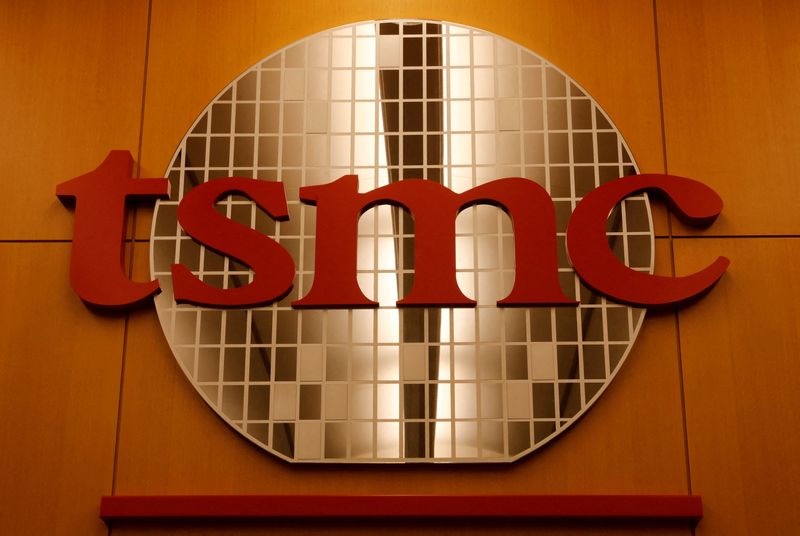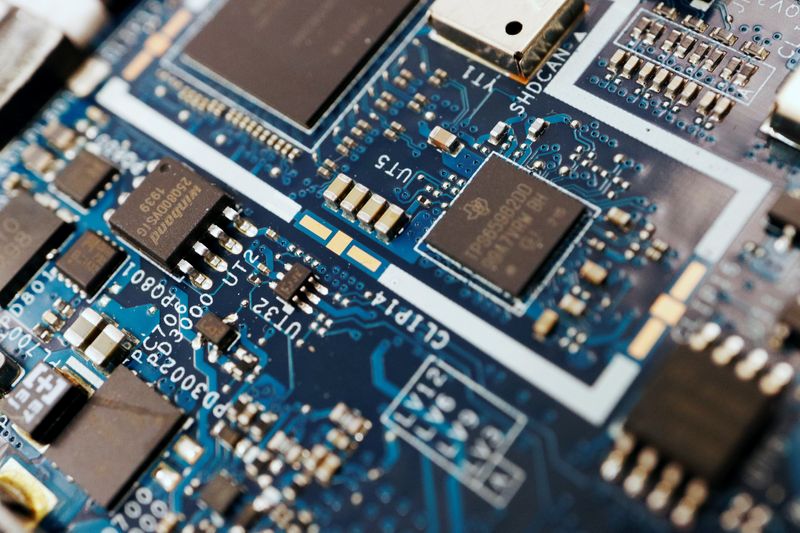By Jane Lanhee Lee, Karen Freifeld and Alexandra Alper
OAKLAND, Calif./NEW YORK (Reuters) -The U.S. is scrambling to tackle unintended consequences of its new export curbs on China's chip industry that could inadvertently harm the semiconductor supply chain, people familiar with the matter said.
Hours before a new restriction took effect, South Korean memory chipmaker SK Hynix Inc said it got authorization from the United States to receive goods for its chip production facilities in China without additional licensing imposed by the new rules.
Separately, Taiwan Semiconductor Manufacturing Co secured a one-year license to continue ordering American chipmaking equipment for its expansion in China, Nikkei Asia reported on Thursday.
The U.S. government assured TSMC that it will be able to ship the equipment to a manufacturing facility in the Chinese city of Nanjing, Nikkei report said, citing people familiar with the matter. TSMC did not immediately respond to Reuters' request for comment.
The Biden administration had planned to spare foreign companies operating in China such as SK Hynix and Samsung Electronics (OTC:SSNLF) Co from the brunt of new restrictions, but the rules published Friday did not exempt such firms.
As published, the rules require licenses before U.S. exports can be shipped to facilities with advanced chip production in China as part of a U.S. bid to slow China's technological and military advances.
And as of midnight Tuesday, vendors also could not support, service and send non-U.S. supplies to the China-based factories without licenses if U.S. companies or people are involved.
As a result, even basic items like light bulbs, springs, and bolts that keep tools running may not have been able to be shipped until vendors are granted licenses. And without the minute-by-minute support the foundries need, they could begin shutting down, one source said.
"Our discussions with the Department of Commerce led to an approval to supply equipment and items needed for development and production of DRAM semiconductors in Chinese facilities without additional licensing requirements," SK Hynix said in a statement.
The company said the change would help avoid disruptions to the supply chain and that the authorization is for a year.
Samsung (KS:005930) Electronics declined to comment.
Another source said the temporary fix was until a longer-term solution could be worked out.
A U.S. Commerce Department spokesperson did not directly respond to a request for comment on the authorizations, but said the department hopes to get input from stakeholders about the rule and may consider changes.
A White House spokesperson also did not respond to a request for comment.
"Unless the authorization was issued, a variety of equipment and other suppliers would have had to pull their personnel from the fabs in China," one of the sources said.
The U.S. planned to review licenses for non-Chinese factories in China hit by the new restrictions on a case-by-case basis, but even if approved that could create delays in shipments. Licenses for Chinese chip factories were likely to be denied.

Intel Corp (NASDAQ:INTC) also operates chip factories in China.
Chinese chip facilities are not expected to get any reprieve.
